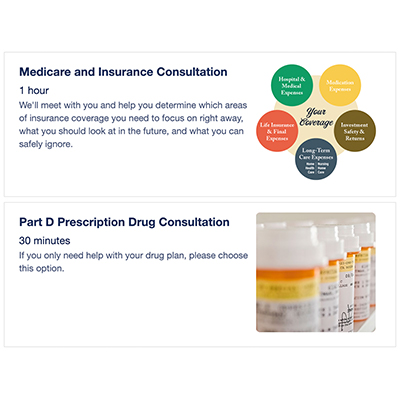
What to Know About Medicare and Weight Loss Drugs
Weight loss drugs like Ozempic, Rybelsus, and Wegovy have been gaining quite a bit of attention lately.
These medications, part of a newer class called GLP-1s, are helping people shed pounds and improve their health.
They’ve been especially effective for managing conditions like diabetes and are now being more widely discussed as a treatment for obesity.
However, they’re expensive, and Medicare doesn’t fully cover them—at least, not yet.
Join Our Email List
Join our newsletter for weekly emails about senior interest topics like Medicare, health and fitness, gardening, retirement planning, and more!
Sign Up!
What Are Weight Loss Drugs and What Do They Do?
Weight loss drugs, like GLP-1 medications, help people lose weight by affecting how the body processes food and controls appetite.
These drugs work by mimicking a hormone called GLP-1, which helps regulate blood sugar, slow down digestion, and make you feel full longer.
This can lead to eating less and losing weight over time.
The Growing Need for Weight Loss Medications
According to the Centers for Disease Control and Prevention, over 40% of American adults are considered obese.
Obesity isn’t just about weight—it’s linked to serious health problems like heart disease, diabetes, and even certain cancers, and some of the most popular weight loss drugs, like Rybelsus, Wegovy, and Ozempic, have shown great results in helping people lose weight and improve those related health issues.

Scientists are also finding even more potential benefits of GLP-1 drugs. They might help reduce alcohol cravings and improve sleep apnea.
With all this promise, it’s no wonder these medications are getting so much attention.
What Does Medicare Cover Right Now?
Medicare Part B (Medical Insurance) currently covers obesity screenings and behavioral therapy for anyone with a BMI of 30 or higher.
This includes counseling on diet and exercise to help with weight loss.
The sessions must happen with your primary care doctor in their office, so they can coordinate your care and create a personalized prevention plan just for you.
Weight Loss Drugs and Medicare
Right now, Medicare doesn’t cover medications prescribed just for weight loss.
However, if these drugs are prescribed for other conditions like diabetes or cardiovascular disease, you may be able to get them covered under your Part D prescription drug plan. But if they’re only being used for weight loss, they’re not covered.
This leaves many Medicare beneficiaries—many of whom are obese—facing high out-of-pocket costs for these potentially life-changing medications, making them out of reach for some people.
Proposed Changes in Coverage
There’s talk about changing Medicare rules to cover them specifically for weight loss. In November, President Biden proposed making these drugs a covered benefit for those diagnosed with obesity. However, the incoming Trump administration will make the final decision on this.
This change would recognize obesity as a disease, not just a cosmetic issue, and treat it like other chronic conditions.

If this happens, millions of Medicare recipients could gain access to these medications, which could help tackle the obesity epidemic. However, insurance plans might still require extra steps, like prior authorization, before approving the medications.
Price Negotiations for Weight Loss Drugs
On top of the proposed coverage changes, there’s also a push to make these medications more affordable through price negotiations.
The Biden administration recently announced that Ozempic, Rybelsus, and Wegovy will be up for price negotiations with Medicare. This is part of the Inflation Reduction Act of 2022, which aims to lower drug costs by allowing the government to negotiate directly with drug manufacturers.
But just because these drugs are on the list doesn’t mean the negotiations are guaranteed to happen. The drugmakers have a little over a month to decide if they want to negotiate. If they don’t, they could face tax penalties or choose to pull the drug from the Medicare program entirely, cutting them off from a huge portion of the market.
There’s also uncertainty about what will happen under the incoming Trump administration, which will have the final say on whether the negotiations move forward. If the negotiations happen, they’re set to begin in 2025, with new prices taking effect in 2027.
Challenges and Considerations
The big challenge with expanding Medicare coverage for weight loss drugs is the cost (to both Medicare and the taxpayers).
Both the Centers for Medicare & Medicaid Services (CMS) and the Congressional Budget Office (CBO) are concerned about how this could impact Medicare’s budget.
However, it’s important to keep in mind that people with higher BMIs often face much higher healthcare costs. Covering effective weight loss treatments could help lower those costs and improve overall health, making it potentially more cost-effective in the long run. If deals are reached, it could also save taxpayers billions of dollars.
While these medications have the potential to improve health outcomes for many, lawmakers will need to carefully weigh the benefits against the financial burden on the Medicare program.
What’s Next for You?
As support for weight loss drugs continues to grow, we’re likely to see new opportunities for seniors dealing with obesity in the near future.
We know it’s a lot to keep up with, and changes to Medicare rules can be tough to navigate. That’s where we come in!
If you have questions about your coverage or want to stay on top of these changes, reach out to your trusted Sams/Hockaday agent. We’re here to help you understand your options and make the best choices for both your health and your budget.
Schedule an Appointment
Book time right on our agents' calendars using our online scheduling system.
Choose Appointment


